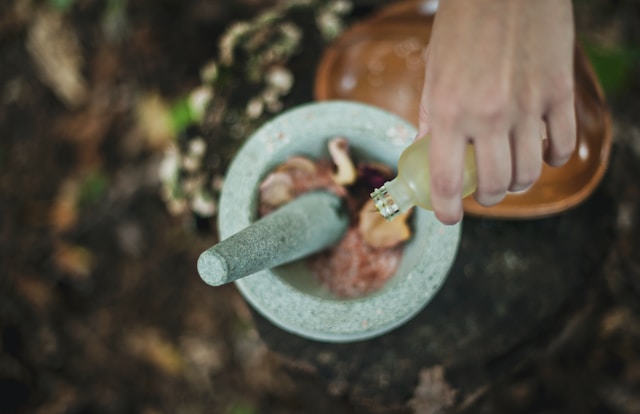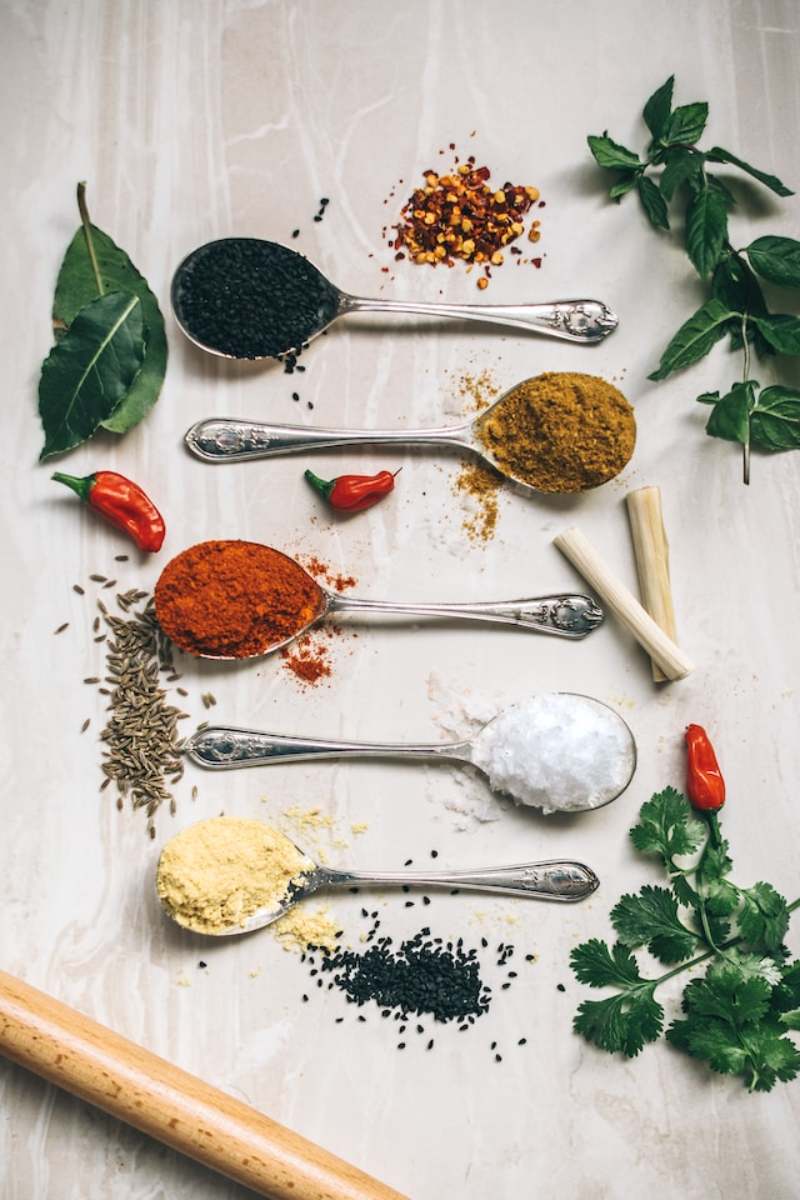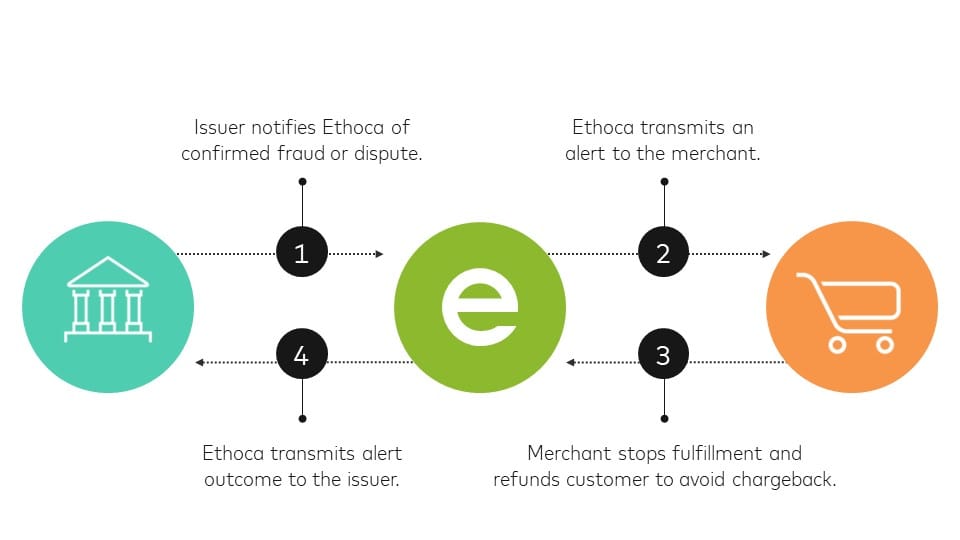
SuperPay helps alternative medicine professionals like yourself get paid as quickly as possible. Choose our platform to power your payments & billing.
Welcome to our blog post on the essentials for a herbal medicine store! If you're passionate about natural remedies and want to create a thriving business in the herbal medicine industry, this post is for you.
Herbal medicine has been used for centuries to promote health and well-being. With the growing interest in alternative and holistic approaches to healthcare, the demand for herbal remedies and products has never been higher. As a herbal medicine store owner, it's important to understand the key essentials that will help you run a successful business and meet the needs of your customers.
In this blog post, we will cover the essential inventory items that every herbal medicine store should carry. From a diverse range of herbs to key herbal remedies, we will explore the must-have products that will attract customers and keep them coming back for more.
But it's not just about the products. We will also discuss the accessories and tools necessary for herbal medicine use. From mortar and pestle to herbal tea infusers, these tools are essential for preparing and administering herbal remedies effectively.
Sourcing quality herbs and herbal products is vital for the success of your store. We will delve into the importance of organic certification and how it ensures the purity and potency of the herbs you offer. Additionally, we will share tips on working with reputable suppliers and conducting quality checks to ensure you are providing the best products to your customers.
Promoting and selling herbal medicine requires a strategic approach. We will discuss the importance of educating your customers about herbal medicine and how it can benefit their health. Furthermore, we will share effective marketing strategies tailored specifically for a herbal medicine store, as well as guidelines for legal compliance in advertising and sales.
Running a successful herbal medicine store goes beyond just selling products. We will explore the importance of regular inventory management to keep your store well-stocked and organized. Additionally, staying updated with the latest herbal medicine research will allow you to provide your customers with the most up-to-date information and products. Lastly, we will discuss the power of building a community around your store and how it can foster customer loyalty and growth.
Whether you're a seasoned herbalist or just starting out in the herbal medicine industry, understanding the essentials for a herbal medicine store is crucial. So, let's dive in and discover how you can create a thriving business while helping people achieve better health through the power of herbs.
Understanding Herbal Medicine: An Introduction
Herbal medicine, also known as botanical medicine or phytotherapy, is a form of alternative medicine that utilizes plants and plant extracts to promote health and address various ailments. It is an ancient practice that has been used by different cultures around the world for centuries.
The foundation of herbal medicine lies in the belief that plants possess medicinal properties that can be harnessed to support the body's natural healing processes. Herbal remedies can be used to treat a wide range of health conditions, from common ailments like colds and digestive issues to chronic conditions such as arthritis and insomnia.
One of the key principles of herbal medicine is the holistic approach to health. Rather than targeting specific symptoms, herbal remedies aim to restore balance and harmony to the body as a whole. This approach takes into consideration not only the physical symptoms but also the emotional and mental well-being of an individual.
Herbs can be used in various forms, including teas, tinctures, capsules, creams, and essential oils. Each form has its own benefits and applications, allowing for flexibility in addressing different health concerns.
It is important to note that while herbal medicine can be highly effective, it is not a substitute for professional medical advice and treatment. It is always recommended to consult with a qualified healthcare practitioner before using herbal remedies, especially if you have pre-existing medical conditions or are taking medications.
In recent years, there has been a resurgence of interest in herbal medicine as people seek more natural and holistic approaches to healthcare. The growing popularity of herbal remedies has led to an increased demand for herbal medicine stores that provide high-quality products and expert guidance.
Understanding the fundamentals of herbal medicine is essential for running a successful herbal medicine store. Having a solid knowledge of different herbs, their properties, and their traditional uses will enable you to assist and educate your customers effectively. In the following sections, we will explore the essential inventory, sourcing, promotion, and maintenance aspects of a herbal medicine store in more detail. So, let's delve deeper into the world of herbal medicine and discover the essentials for your store.
Essential Inventory for a Herbal Medicine Store
When it comes to running a successful herbal medicine store, having the right inventory is crucial. Your inventory should not only reflect the diversity of herbs available but also cater to the specific needs and preferences of your customers. In this section, we will explore the essential inventory items that every herbal medicine store should carry.
Importance of Carrying a Diverse Range of Herbs
A diverse range of herbs is essential for any herbal medicine store. Different herbs have unique properties and therapeutic benefits, making it important to offer a wide selection to meet the varied needs of your customers. Some popular herbs to consider stocking include:
Echinacea: Known for its immune-boosting properties, Echinacea is commonly used to prevent and treat colds and flu.
Chamomile: Chamomile is a soothing herb that promotes relaxation and can be used to alleviate stress, anxiety, and insomnia.
Ginger: Ginger has anti-inflammatory properties and is often used to aid digestion, relieve nausea, and reduce muscle pain.
Valerian: Valerian root is known for its calming effects and is commonly used to promote sleep and reduce anxiety.
St. John's Wort: This herb is often used to alleviate symptoms of mild to moderate depression and improve mood.
Turmeric: With its powerful anti-inflammatory and antioxidant properties, turmeric is highly sought after for its potential health benefits.
Peppermint: Peppermint is known for its soothing effects on the digestive system and can help relieve symptoms of indigestion and bloating.
This is just a small sample of the many herbs available. It's important to do market research and understand the preferences and demands of your target audience to curate the most relevant and sought-after herbs.
Key Herbal Remedies to Stock
In addition to offering individual herbs, it is also essential to stock key herbal remedies that are commonly used and in high demand. These remedies can include:
Herbal teas: Herbal teas are a popular and convenient way for customers to enjoy the benefits of herbs. Consider stocking a variety of loose-leaf teas and tea bags with different blends and flavors.
Herbal tinctures: Tinctures are concentrated liquid extracts made from herbs and alcohol. They are highly potent and can be used to address specific health concerns. Ensure you have a selection of tinctures that cater to common ailments like digestive issues, immune support, and stress relief.
Herbal capsules: Capsules offer a convenient and portable way for customers to take herbal supplements. Stock a range of herbal capsules that target different health concerns such as joint health, sleep support, and immune system support.
Herbal creams and ointments: Herbal creams and ointments are used topically for various skin conditions, muscle pain, and inflammation. Consider carrying a selection of creams that contain herbs like arnica, calendula, and comfrey.
By offering a variety of herbal remedies, you can cater to different customer preferences and provide comprehensive solutions for their health needs.
Accessories and Tools Necessary for Herbal Medicine Use
To complement your herbal inventory, it is important to stock a range of accessories and tools that are necessary for the preparation and administration of herbal remedies. Some essential items to consider including are:
Mortar and pestle: A mortar and pestle are necessary for grinding herbs into fine powders or for making herbal blends.
Tea infusers and strainers: These tools are essential for brewing loose-leaf herbal teas and straining them before consumption.
Herb storage containers: Proper storage of herbs is essential to maintain their freshness and potency. Stock a variety of airtight containers for customers to store their herbs at home.
Herbal remedy books and reference materials: Offer a selection of books and reference materials that provide information on herbal remedies, their uses, and dosage recommendations. This can help educate and empower your customers to make informed decisions.
By providing these essential accessories and tools, you not only enhance the customer experience but also position yourself as a trusted resource for herbal medicine knowledge.
Now that we've covered the essentials of inventory for a herbal medicine store, let's move on to the next section, where we will discuss how to source quality herbs and herbal products.

How to Source Quality Herbs and Herbal Products
Sourcing quality herbs and herbal products is of utmost importance for a herbal medicine store. Providing your customers with high-quality and potent herbs ensures their satisfaction and trust in your products. In this section, we will explore the essential steps to sourcing quality herbs and herbal products for your store.
Understanding Organic Certification and its Importance
One key aspect of sourcing quality herbs is understanding the importance of organic certification. Organic certification ensures that herbs are grown, processed, and handled without the use of synthetic pesticides, herbicides, or genetically modified organisms (GMOs). Here are some steps to consider:
Seek organic certification: Look for suppliers that offer organic-certified herbs. This certification guarantees that the herbs are cultivated according to strict organic standards.
Research reputable certifying bodies: Familiarize yourself with reputable certifying bodies such as the United States Department of Agriculture (USDA) or the European Union Organic Certification. These organizations have rigorous standards for organic certification.
Verify organic claims: Request documentation from your suppliers to verify their organic claims. This can include organic certification certificates, inspection reports, and lab test results.
By sourcing organic herbs, you ensure that your customers receive products free from harmful chemicals and pesticides, providing them with a higher level of quality and safety.
Working with Reputable Suppliers
Finding reputable suppliers is crucial to sourcing quality herbs and herbal products. Here are some steps to consider when selecting suppliers:
Conduct thorough research: Look for suppliers with a good reputation and a track record of providing high-quality herbs. Check online reviews, ask for recommendations from other herbalists or store owners, and attend industry trade shows to connect with suppliers.
Visit suppliers in person: If possible, visit the facilities of potential suppliers to assess their growing and processing practices. This allows you to see firsthand how the herbs are cultivated, harvested, and handled.
Request samples: Ask suppliers for samples of their herbs before making a purchasing decision. This allows you to evaluate the quality, aroma, and freshness of the herbs.
Consider sustainable practices: In addition to quality, consider suppliers who prioritize sustainable practices such as ethical sourcing, fair trade, and environmentally friendly packaging.
Building strong relationships with reputable suppliers ensures a consistent supply of high-quality herbs and herbal products for your store.
Conducting Quality Checks
Performing quality checks on the herbs and herbal products you receive is essential to maintain the integrity of your inventory. Here are some steps to consider:
Inspect the physical appearance: Examine the herbs for any signs of mold, discoloration, or foreign materials. Quality herbs should have vibrant colors, a fresh aroma, and no visible impurities.
Analyze the taste and aroma: Taste and smell the herbs to ensure they have the characteristic flavors and aromas associated with each herb. This can help identify any potential issues with quality or adulteration.
Test for potency: Consider partnering with a reputable laboratory to conduct potency tests on your herbs. This can verify the concentration of active compounds and ensure that the herbs are of the highest quality.
Monitor customer feedback: Keep an eye on customer feedback and inquiries regarding the quality and effectiveness of the herbs. This helps identify any potential issues and allows you to address them promptly.
By implementing these quality checks, you can maintain a consistent level of quality in your herbal inventory and provide your customers with reliable and effective products.
Now that we have covered the essential steps to sourcing quality herbs and herbal products, let's move on to the next section where we will discuss how to promote and sell herbal medicine effectively.
Promoting and Selling Herbal Medicine
Promoting and selling herbal medicine effectively is essential for the success of your herbal medicine store. In this section, we will explore strategies to educate your customers about herbal medicine, effective marketing techniques, and ensuring legal compliance in advertising and sales.
Educating Customers about Herbal Medicine
One of the key aspects of promoting and selling herbal medicine is educating your customers about its benefits and uses. Here are some strategies to consider:
Provide educational resources: Offer brochures, pamphlets, and informational materials that explain the basics of herbal medicine, common health concerns that can be addressed with herbs, and dosage recommendations. Make these resources easily accessible in-store and on your website.
Host workshops and classes: Organize workshops and classes where customers can learn about herbal medicine and how to use specific herbs for various health conditions. Invite guest speakers, such as herbalists or naturopathic doctors, to share their expertise and insights.
Offer personalized consultations: Provide one-on-one consultations where customers can discuss their health concerns and receive personalized recommendations for herbal remedies. This personalized approach helps build trust and loyalty among your customers.
By educating your customers, you empower them to make informed decisions and develop a deeper understanding of the benefits and applications of herbal medicine.
Marketing Strategies for a Herbal Medicine Store
Effective marketing is crucial for attracting and retaining customers. Here are some marketing strategies specifically tailored for a herbal medicine store:
Develop an online presence: Create a professional website that showcases your store, products, and services. Optimize your website for search engines to increase visibility. Utilize social media platforms to engage with your audience, share educational content, and promote special offers.
Collaborate with influencers: Partner with influential bloggers, social media personalities, or local health and wellness experts who align with your brand values. They can help promote your store and products to their audience, increasing your reach and credibility.
Offer loyalty programs and incentives: Implement loyalty programs that reward repeat customers with discounts, exclusive offers, or free samples. Encourage referrals by providing incentives for customers who refer friends or family to your store.
Participate in community events: Attend health fairs, farmers' markets, or local community events to showcase your store and interact with potential customers. Offer samples, demonstrations, or mini-consultations to engage with attendees and generate interest.
Remember, consistency is key in marketing. Regularly evaluate the effectiveness of your marketing strategies and adjust them accordingly to reach your target audience effectively.
Ensuring Legal Compliance in Advertising and Sales
When promoting and selling herbal medicine, it is essential to comply with legal regulations and guidelines. Here are some key considerations:
Familiarize yourself with local regulations: Research and understand the legal requirements and restrictions governing the advertising and sale of herbal medicine in your region. This includes labeling guidelines, health claims, and any restrictions on specific herbs or ingredients.
Use accurate and truthful information: When promoting herbal medicine, make sure your marketing materials provide accurate and evidence-based information. Avoid making exaggerated or misleading claims about the efficacy of your products.
Consult with legal professionals: If you are unsure about any legal aspects of advertising or sales, seek guidance from legal professionals specializing in the herbal medicine industry. They can provide valuable advice and help ensure your compliance with regulations.
By adhering to legal requirements, you build trust with your customers and protect the integrity of your herbal medicine store.
Now that we have explored strategies to promote and sell herbal medicine effectively, let's move on to the next section where we will discuss how to maintain a successful herbal medicine store.
Maintaining a Successful Herbal Medicine Store
Maintaining a successful herbal medicine store requires ongoing efforts to ensure smooth operations, stay updated with the latest research and trends, and build a loyal customer base. In this section, we will explore key aspects of maintaining a successful herbal medicine store.
Regular Inventory Management
Effective inventory management is crucial to ensure that your store always has an adequate supply of herbs and herbal products. Here are some tips to help you manage your inventory efficiently:
Conduct regular stock checks: Regularly assess your inventory to identify low-stock items and plan for restocking. Use inventory management software or spreadsheets to track product quantities, expiration dates, and reorder points.
Establish relationships with multiple suppliers: Having multiple suppliers ensures that you have alternative options if one supplier has stock shortages or quality issues. It also allows you to compare prices and negotiate better deals.
Implement a first-in, first-out (FIFO) system: Arrange your inventory based on the principle of FIFO, where products with the earliest expiration dates are sold first. This minimizes the risk of products expiring and helps maintain freshness and quality.
Monitor customer preferences and trends: Keep track of the herbs and herbal products that are most popular among your customers. This information can guide your purchasing decisions and help you stock items that are in high demand.
By implementing effective inventory management practices, you can ensure that your customers always find the products they need and minimize the risk of stockouts or expired items.
Staying Updated with Herbal Medicine Research
To maintain credibility and provide the best possible guidance to your customers, it is important to stay updated with the latest research and developments in the field of herbal medicine. Here are some strategies to help you stay informed:
Subscribe to reputable publications: Subscribe to scientific journals, magazines, or newsletters that focus on herbal medicine, natural remedies, and complementary therapies. This will provide you with access to the latest research findings and expert insights.
Attend conferences and workshops: Participate in conferences, workshops, and seminars related to herbal medicine. These events often feature renowned experts who present new research and share their knowledge and experiences.
Network with other professionals: Connect with other herbalists, naturopaths, and healthcare professionals who specialize in herbal medicine. Engage in discussions, attend professional meetings, and join online communities to exchange ideas and stay updated.
Follow trusted online sources: Follow reputable websites, blogs, and social media accounts that provide reliable information on herbal medicine. Be discerning and verify the credibility of the sources before incorporating the information into your practice.
By staying updated with the latest research, you can confidently provide accurate information, recommend evidence-based herbal remedies, and adapt your offerings based on emerging trends and scientific advancements.
Building a Community Around Your Store
Creating a sense of community around your herbal medicine store can help foster customer loyalty and attract new customers. Here are some ways to build a community:
Host events and workshops: Organize educational events, workshops, or guest speaker sessions where customers can learn, engage, and connect with each other. Topics can range from herbal medicine basics to advanced herb usage.
Offer loyalty programs: Develop a loyalty program that rewards customers for their continued support. This can include exclusive discounts, early access to new products, or special events for loyal customers.
Facilitate online interactions: Create online forums, social media groups, or a dedicated community platform where customers can share their experiences, ask questions, and support each other on their herbal medicine journeys.
Collaborate with local businesses: Partner with local health food stores, yoga studios, or wellness centers to cross-promote each other's businesses. This can include joint events, product displays, or referral programs.
By building a community around your store, you create a supportive environment where customers feel valued and connected. This fosters customer loyalty and encourages word-of-mouth referrals, ultimately contributing to the success of your herbal medicine store.
Congratulations! You now have a comprehensive understanding of the essentials for a herbal medicine store. By implementing the strategies and tips discussed throughout this blog post, you can create and maintain a successful herbal medicine store that provides high-quality products, educates customers, and builds a loyal community. Good luck on your herbal medicine journey!


